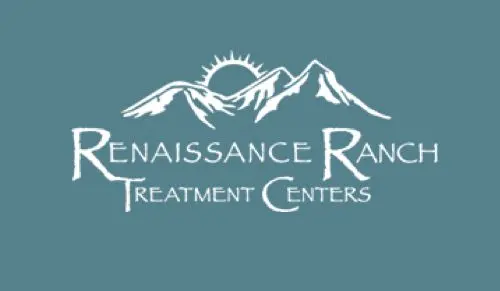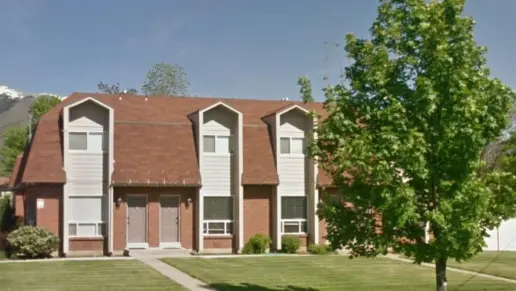I am not one to leave reviews but I need to give Cold Creek a big shout out for the care they gave my son and for the family program. From the first call that I made, to him graduating and then the continued support. Cold Creek staff really does care and wants the best for e ...
About Cold Creek Behavioral Health – Cold Creek Lodge
Cold Creek Behavioral Health – Loop Road is committed to helping individuals and families overcome addiction by providing compassionate and comprehensive addiction treatment services. Cold Creek Behavioral Health offers individuals a non 12 step approach to treat drug and alcohol addiction utilizing Cognitive Behavioral Therapy, individual counseling, group therapy and experiential therapies.
Cold Creek Behavioral Health is substantially different from other drug, alcohol and addiction treatment programs. Combining traditional proven recovery methods with highly specialized therapies to create a unique program and environment where individuals and families can experience healing and lasting recovery. Cold Creek Behavioral Health offers industry leading therapist to client ratios. This individual attention is a proven key to successful recovery.
In addition to alcohol treatment and drug rehab, Cold Creek Behavioral Health’s therapists specialize in dual diagnosis disorders essential for treating co-occurring mental health issues. Cold Creek Behavioral Health also provides addiction treatment for: video game addiction, sex addiction, gambling addiction and pornography addiction.
Kaysville, Utah is situated at the foot of the Rocky Mountains near the shore of the Great Salt Lake. Offering ample opportunities for outdoor activities. Cold Creek Kaysville is also located across the street from the regional Barnes Park Sportsplex with baseball diamonds, volleyball courts, pavilions and much more.
For those flying in from out of town we’re located only 20 minutes north of the Salt Lake International Airport (SLC).
Rehab Score
Gallery
Accepted Insurance
Other Forms of Payment
Self-pay involves paying for treatment out of your own pocket. You can use savings or credit, get a personal loan, or receive help from family and friends to fund your treatment. If you don't have insurance or your insurance plan doesn't cover a specific program, self-pay can help ensure you still get the care you need.
Private insurance refers to any kind of healthcare coverage that isn't from the state or federal government. This includes individual and family plans offered by an employer or purchased from the Insurance Marketplace. Every plan will have different requirements and out of pocket costs so be sure to get the full details before you start treatment.
Military members, veterans, and eligible dependents have access to specific insurance programs that help them get the care they need. TRICARE and VA insurance can help you access low cost or no cost addiction and mental health treatment. Programs that accept military insurance often have targeted treatment focused on the unique challenges military members, veterans, and their families face.
Addiction Treatments
Levels of Care
Treatments
The goal of treatment for alcoholism is abstinence. Those with poor social support, poor motivation, or psychiatric disorders tend to relapse within a few years of treatment. For these people, success is measured by longer periods of abstinence, reduced use of alcohol, better health, and improved social functioning. Recovery and Maintenance are usually based on 12 step programs and AA meetings.
When you enter a drug rehab in Utah, the process usually involves four stages: treatment initiation, early abstinence, maintaining abstinence, and advanced recovery. Treatment methods can rely on medications, counseling, or both, in either an outpatient or inpatient setting.
Many of those suffering from addiction also suffer from mental or emotional illnesses like schizophrenia, bipolar disorder, depression, or anxiety disorders. Rehab and other substance abuse facilities treating those with a dual diagnosis or co-occurring disorder administer psychiatric treatment to address the person's mental health issue in addition to drug and alcohol rehabilitation.
A combined mental health and substance abuse rehab has the staff and resources available to handle individuals with both mental health and substance abuse issues. It can be challenging to determine where a specific symptom stems from (a mental health issue or an issue related to substance abuse), so mental health and substance abuse professionals are helpful in detangling symptoms and keeping treatment on track.
Opioid rehabs specialize in supporting those recovering from opioid addiction. They treat those suffering from addiction to illegal opioids like heroin, as well as prescription drugs like oxycodone. These centers typically combine both physical as well as mental and emotional support to help stop addiction. Physical support often includes medical detox and subsequent medical support (including medication), and mental support includes in-depth therapy to address the underlying causes of addiction.
Programs


Clinical Services
Animal therapy (aka pet therapy or animal-assisted therapy) can be very healing, as it allows patients to bond with animals, who give unconditional love. This is particularly useful for those who suffered trauma by the hands of people, who may be able to trust and form closer attachments to animals than humans at certain stages of rehabilitation.
Cognitive Behavioral Therapy (CBT) is a therapy modality that focuses on the relationship between one's thoughts, feelings, and behaviors. It is used to establish and allow for healthy responses to thoughts and feelings (instead of unhealthy responses, like using drugs or alcohol). CBT has been proven effective for recovering addicts of all kinds, and is used to strengthen a patient's own self-awareness and ability to self-regulate. CBT allows individuals to monitor their own emotional state, become more adept at communicating with others, and manage stress without needing to engage in substance abuse.
Dialectical Behavior Therapy (DBT) is a modified form of Cognitive Behavioral Therapy (CBT), a treatment designed to help people understand and ultimately affect the relationship between their thoughts, feelings, and behaviors. DBT is often used for individuals who struggle with self-harm behaviors, such as self-mutilation (cutting) and suicidal thoughts, urges, or attempts. It has been proven clinically effective for those who struggle with out-of-control emotions and mental health illnesses like Borderline Personality Disorder.
Experiential therapy is a form of therapy in which clients are encouraged to surface and work through subconscious issues by engaging in real-time experiences. Experiential therapy departs from traditional talk therapy by involving the body, and having clients engage in activities, movements, and physical and emotional expression. This can involve role-play or using props (which can include other people). Experiential therapy can help people process trauma, memories, and emotion quickly, deeply, and in a lasting fashion, leading to substantial and impactful healing.
EMDR is one of the many comprehensive evidence based addiction treatments available at Cold Creek Behavioral Health. Each client receives a comprehensive intake evaluation to identify what specific issues are contributing to their addiction. If a traumatic life event or PTSD is identified, the clients counselor will likely include EMDR therapy in their personalized treatment plan. The main focus of EMDR therapy is processing memories stored in the brain. EMDR is used to compliment other therapies like Dialectical Behavior Therapy (DBT)—and not as a stand alone therapy. According to Francine Shapiro, the Dr. who pioneered EMDR “traumatic memories aren’t necessarily a sign of post-traumatic stress disorder. Something relatively small like being bullied at the age of five can cause even more symptoms of PTSD than a major trauma,” she says. “It’s often a wide variety of life experiences that lead to the memories, beliefs and doubts that set the foundation for addiction. When those things are triggered, feelings of negativity and self-doubt like “I’m not good enough” or “I’m not lovable” begin to surface. And when people can’t cope with these feelings, they turn to drugs to kill them.”
Research clearly demonstrates that recovery is far more successful and sustainable when loved ones like family members participate in rehab and substance abuse treatment. Genetic factors may be at play when it comes to drug and alcohol addiction, as well as mental health issues. Family dynamics often play a critical role in addiction triggers, and if properly educated, family members can be a strong source of support when it comes to rehabilitation.
Group therapy is any therapeutic work that happens in a group (not one-on-one). There are a number of different group therapy modalities, including support groups, experiential therapy, psycho-education, and more. Group therapy involves treatment as well as processing interaction between group members.
In individual therapy, a patient meets one-on-one with a trained psychologist or counselor. Therapy is a pivotal part of effective substance abuse treatment, as it often covers root causes of addiction, including challenges faced by the patient in their social, family, and work/school life.
Life skills trainings involve all the skills a person must have in order to function successfully in the world. These include time management, career guidance, money management, and effective communication. Truly successful addiction recovery is based on the ability to not only live substance-free, but to thrive. Life skills teaches the practical necessities of functioning in society, which sets clients up for success in life, and therefore sobriety.
Motivational Interviewing is one of the many successful therapies we utilize to help our clients overcome the underlying behaviors contributing to their addiction. Motivational Interviewing is much like using the martial art of judo. In judo, an attack is not met with direct opposition, such as in boxing, but rather one goes with the attacker’s momentum, using it to their advantage. The counselor does not impose new views or goals on the client; rather, the person is invited to consider new information and is offered new perspectives. Rather than saying “I will change you” a more appropriate message is “If you want, I can help you change” Motivational Interviewing wants the client to gain motivation to change a behavior that is not consistent with their personal values or goals. We want to help them start to make positive changes in their lives.
Amenities
-
Private Setting
-
Private Rooms
Accreditations

The Joint Commission, formerly known as JCAHO, is a nonprofit organization that accredits rehab organizations and programs. Founded in 1951, the Joint Commision's mission is to improve the quality of patient care and demonstrating the quality of patient care.
Joint Commission Accreditation: Yes
Accreditation Number: 537254

The Substance Abuse and Mental Health Services Administration (SAMHSA) is a branch of the U.S. Department of Health and Human Services. Established in 1992 by congress, SAMHSA's mission is to reduce the impact of substance abuse and mental illness on American's communities.
SAMHSA Listed: Yes
Contact Information
8155 Brighton Loop Road
Salt Lake City, UT 84121




